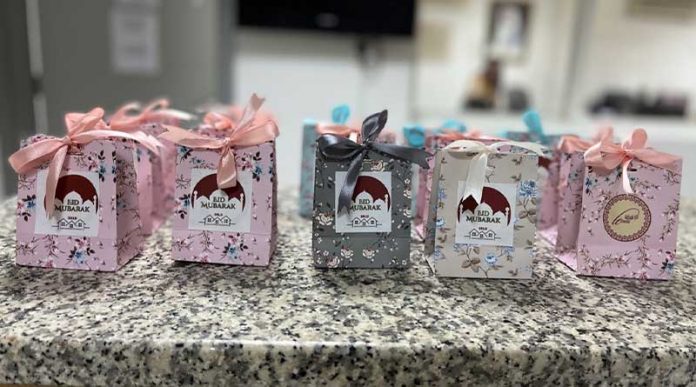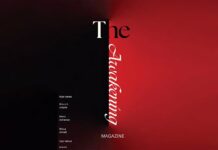Eid is a bitter-sweet occasion for expatriates in the UAE as they celebrate the festival away from their families.
By Malika Kaloo
“Eid away from my family doesn’t feel like Eid,” says Abdul Qudoos, a Pakistani taxi driver in the United Arab Emirates.
Eid is the time of the year when Muslims around the world celebrate with their loved ones, exchange gifts, relish delicious food and spend time with their families. From the UAE to the United States, from Indonesia to India, it is all about festivities, new clothes, traditional food, Eid prayers and family get-togethers.
However, for Qudoos and many others in the UAE, who are away from their homes, Eid is just like any other day.
“I have been living in the UAE for the past 16 years and during this time I have celebrated Eid only twice or thrice back home in Pakistan,” says Qudoos. “Here, we work even on Eid because demand for taxis increases during holidays.”

“After praying in the morning, I leave for work, come back early and then have lunch or dinner with my friends. That is how I have been celebrating Eid here,” he adds.
Qudoos says in Pakistan, he used to wake up early for Eid prayers and then take his children, nieces and nephews out for lunch. In the evening, his friends and family would gather for a special Eid dinner.
He says that he misses his family, especially his mother who made “sheer khorma” (a traditional South Asian dessert made of vermicelli, milk and nuts) for him on Eid.
“Eid is incomplete without my mother’s blessings and the delicious food that she makes for us,” he says with tears in his eyes.
Eid in university: Home away from home
In the UAE, there are students from over 150 nationalities living on-campus across many universities. For those students who do not go back to celebrate Eid with their families in their home countries, university dorms are their homes, and their friends are their families.
In a multicultural atmosphere in the dorms at the American University of Sharjah, students from different nationalities celebrate Eid together.
“It is my first time living away from my family. Back home, we would wake up early on Eid, go for prayer, eat Biryani for lunch and then in the evening we would go out,” says Abeer Mohamed, a first-year Indian student at AUS.
“My family lives in Bahrain so this year I will celebrate Eid with my cousins in Dubai as I am not going back for the breaks. It will be a different experience as I will be around more people,” she says.

Yusr Mohamed, a freshman from Sudan, says that this year she will spend Eid alone in the dorms. “I am planning to do something for myself on Eid and take some time off.”
“It is going to be very different for me because I am used to a specific type of Eid tradition where we go out for the first three days and visit our extended family. This is something that I will definitely miss,” says Mohamed.
Samira Hassan Ali Saqer, supervisor of women’s dorms at AUS, says that only around 20-30 students in each block are celebrating Eid in the dorms this year.
“Before the pandemic, we used to decorate the dorms and bring cakes and sweets for all those celebrating Eid in the residential halls but now it is a bit different. Not many students are on campus for Eid so the SRLD (Student Residential Life Department) at AUS will just distribute sweets,” she says.
Saqer says that students usually plan Eid gatherings in the dorms and even go out with their friends.
“I have been at AUS for four years now, but it will be my first Eid in the dorms, away from my family,” says Asma Dildar, a senior-year student from Pakistan.
“As I celebrate Eid in the university, I will be around more people and I am excited about that,” says Abeer Mohamed.
“I will miss family gatherings and all the Eidhi (Eid money) that I used to get from parents, uncles and aunts,” she says.
Dildar plans to spend the day with her friends, go out with them and a take little break from her studies. “It is my final semester. I will really miss this place, so I am taking Eid as an opportunity to enjoy with my friends because my friends are my family here.”
“I could never imagine Eid without my family, but I am grateful for my friends in dorms because they are my family here,” says Aleena Ali.
Traditional Food
After fasting during the holy month of Ramadan, Muslims like to adorn their tables with traditional foods and sweets on the day of Eid al-Fitr.
“While I am away from my family, I make sheer khorma and biryani for my friends on Eid. It makes me feel as if I am in Pakistan,” says Qudoos.
Eid al-Fitr is also known as “Meethi Eid” (Sweet Eid) in South Asia because people prepare desserts like seviya, jalebi, kheer and phirni to start their day on a sweet note after almost 30 days of fasting.
“The one food item that is an indispensable part of our Eid celebrations is shahi tukda. It is made of fried bread cooked with condensed milk, saffron and nuts. As I am celebrating Eid in dorms this year, I will try making it with my friends,” says Dildar.
“But, if we fail, we will order it online,” she adds.
Aleena Ali, a sophomore from India, says she is planning to order Hyderabadi dum biryani and haleem because, for her, traditional Hyderabadi food on Eid is a must.
“Eid has always been about gathering and celebrating what Ramadan brings. It is a very bright time of the year for all of us,” says Yusr Mohamed.
“We start our first day of Eid with khubani ka meetha (apricot dessert) and shahi gulab phirni. I will make khubani ka meetha for my friends in dorms,” says Ali.
Eid brings together people of different nationalities in the UAE who share their traditional foods, values and rituals to mark the end of Ramadan. While no celebration is complete without family, the community circles in this country have not let expats, who are away from their families, feel alone on this special occasion.


















